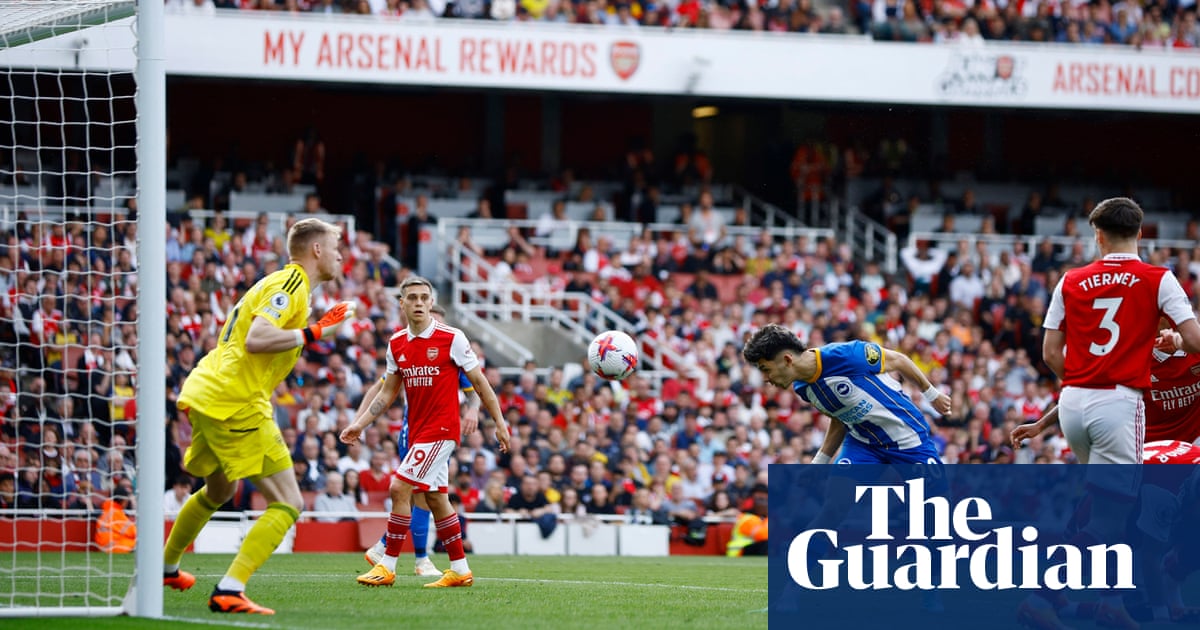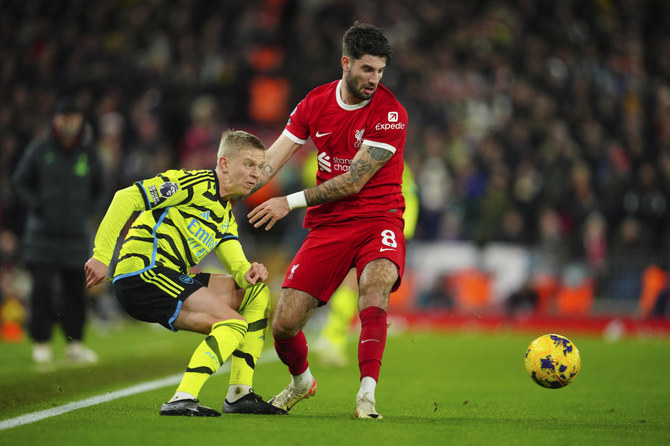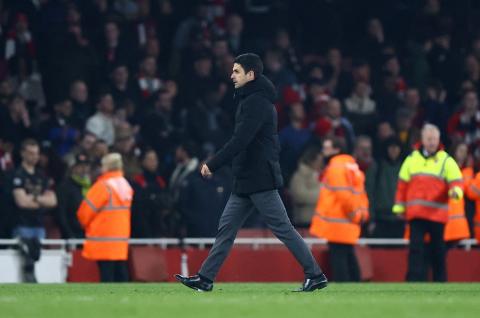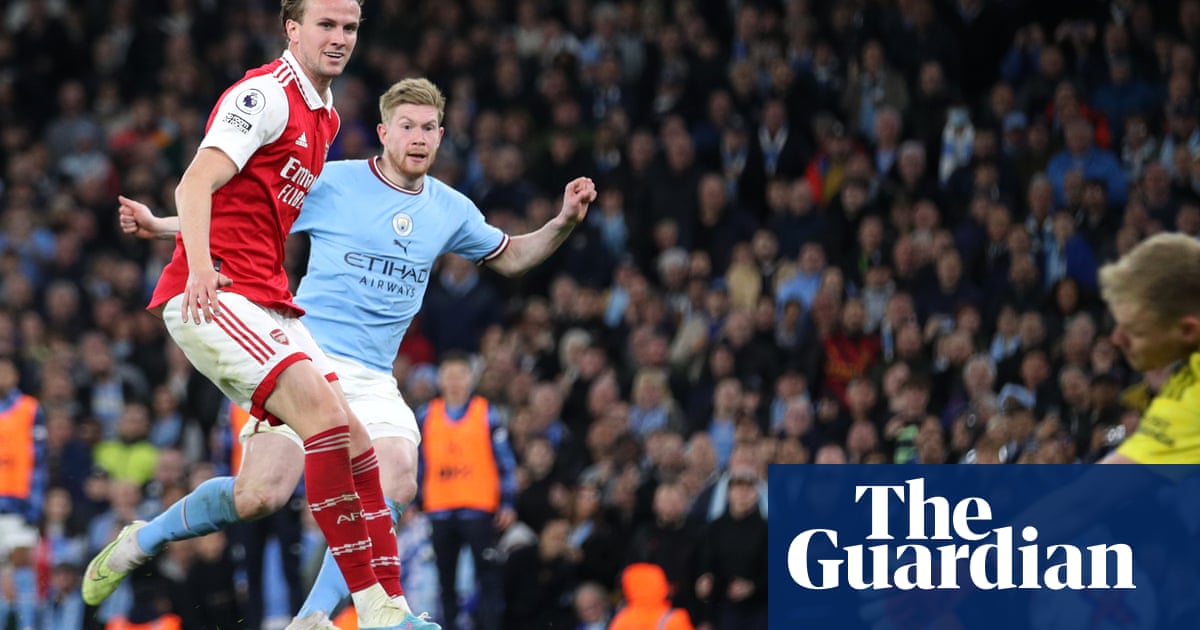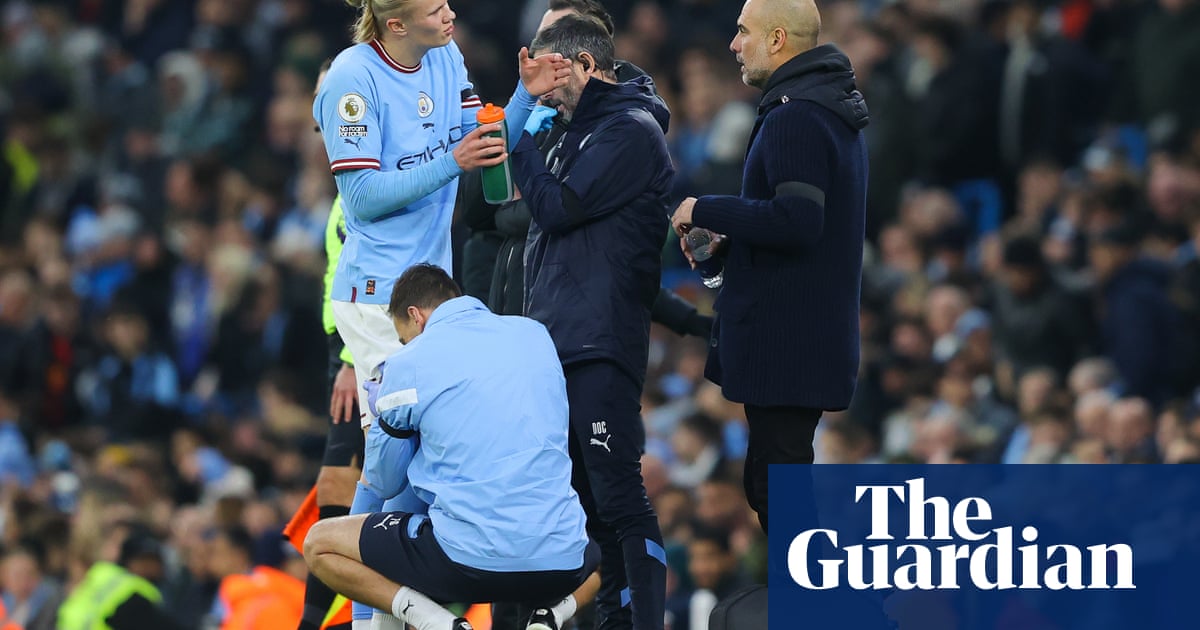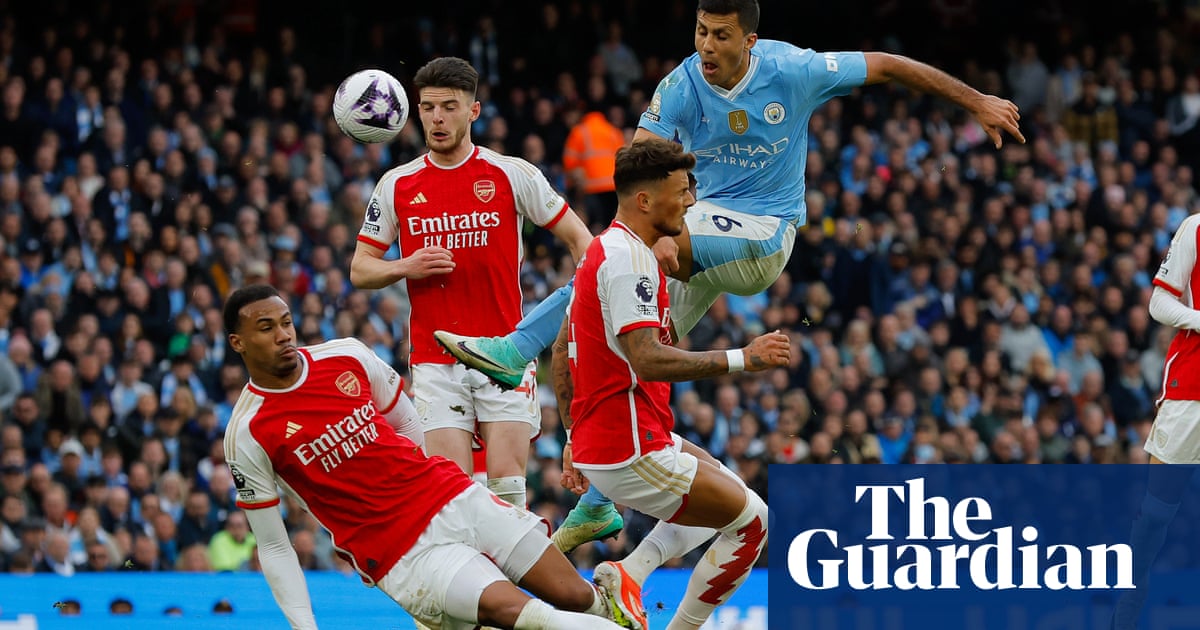
It is fair to say that the bar was set low for Arsenal. On eight previous occasions in all competitions, they had visited the Etihad Stadium to take on Pep Guardiola’s Manchester City. On all eight they had lost. This was much better. It was not the statement victory they had craved, the one to ignite dreams of a first Premier League title in 20 years.
But it was a result that kept them above the defending champions with another game chalked off, the margins narrowing further in the race for the title. If Liverpool, watching from the other end of the East Lancs Road after their home victory against Brighton, were the day’s winners, going two points clear, then Arsenal could not grumble.
Theirs was a performance of focus, of holding their defensive shape, of not being tempted out. They wanted to compress the space, to deny City and it worked. It might have added up to disappointment for the neutral and for the hoped-for spectacle; could anybody remember a clear chance or just any moment of proper excitement?
Mikel Arteta, though, would have taken this beforehand. Arsenal are a club for whom the psychological questions feel perennial. They showed some personality here; progress, too, as Arteta would mention afterwards. He had not forgotten the 4-1 mauling at this ground from last April; the result that pretty much ended Arsenal’s title challenge.
For the first time in 58 matches at the Etihad Stadium, City were held goalless; a club‑record sequence brought to the most grinding of halts. That meant a lot to Arteta.
City’s unbeaten run here rolled on to 39 games and they are now 23 without defeat in all competitions but Guardiola was plainly the unhappier manager, noting with a degree of helplessness that City did not have control of their destiny. According to him, they cannot be considered as the title favourites. It is Liverpool’s to lose.
City have still not won a league game this season against a team in the division’s top five. As against Arsenal at the Emirates Stadium last October, it was suffocatingly tight and tense but on this occasion there was no game-breaking moment. Gabriel Martinelli had provided it for Arsenal in that game, scoring the only goal in the 86th minute, but he was restricted here to a late cameo from the substitutes’ bench on his return from injury. It was not a game for any of the creative talents.
Guardiola’s decision to start Mateo Kovacic in midfield alongside Rodri advertised his desire for control.
It was Manuel Akanji up and inside from right-back at the outset or maybe outside – the emphasis was on the up part of it – while Josko Gvardiol was similarly advanced from left-back, albeit in a straighter line around the outside. It was because Phil Foden embraced his licence to roam inside from the left wing.
It was all slow-burn tactical nuance, Guardiola forced to tweak when Nathan Aké felt something in the 27th minute, his game over. Akanji shuffled inside, Rico Lewis entered at right-back. The principles did not change.
City hogged the ball. They tried to draw the red shirts out of position with patient approach work. Arsenal measured their progress in watching City play their passes and not being sucked in, keeping them where they could see them. In other words, in front of their low block. Gabriel Magalhães set the example with his physicality in the one-on-ones.
Arsenal broke out a few times before the interval. Ben White dropped a cross over Akanji in the early running which Gabriel Jesus took down only to drag wide and Arsenal’s best moment of the first period came just after the half hour. It was Jakub Kiwior who touched back for Jesus and, having jinked to create a half-yard, he arrowed a low shot past the far post.
City could not penetrate in the first-half. They asked why the referee, Anthony Taylor, kept his yellow card in his pocket after a clutch of Arsenal fouls. Guardiola could feel the frustration bubble. The home crowd sensed vulnerability in David Raya when he had the ball at his feet; there were a few iffy clearances from the Arsenal goalkeeper but they did not lead to anything.
Aké had muscled on to a Kevin De Bruyne corner in the 16th minute but he did not get hold of the header, although Raya still needed to be sharp to block. Erling Haaland was bothered out of a header by Gabriel after a Gvardiol cross. Haaland was peripheral.
Arsenal won a few balls high up at the start of the second half and almost got the transitions to work. Martin Ødegaard fed Bukayo Saka, whose cross was meant for Jesus. He could not get there, Akanji defending the situation well. Previously, Kovacic had bent wide at the other end.
The game was locked and Guardiola moved first, swapping Kovacic and Foden for two pure wingers – Jérémy Doku and Jack Grealish. Bernardo Silva went in alongside Rodri. It was an attacking change. Doku’s first touch was electric. The less said about his end product the better.
Arteta stuck with like-for-like substitutions. He liked how it was going. His watchwords remained the same. The concentration had to be unwavering. Do not lose the individual battles. More broadly, do not lose.
A late twist felt unlikely. The die had been cast. Haaland air-kicked under pressure at the far post after Gvardiol had flicked on a De Bruyne corner while the Arsenal substitute, Leandro Trossard, ran on to Ødegaard’s pass only to lack conviction with the finish.




